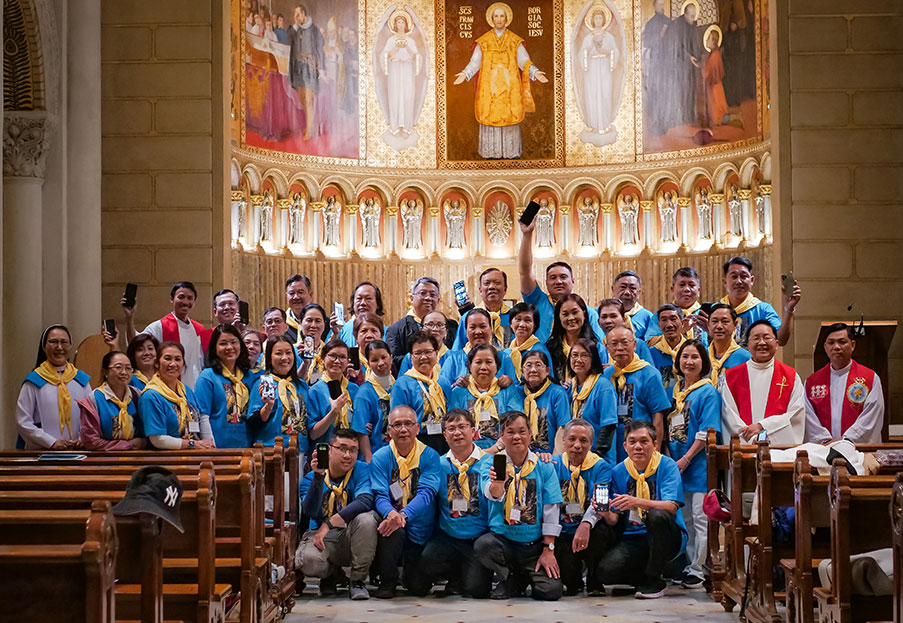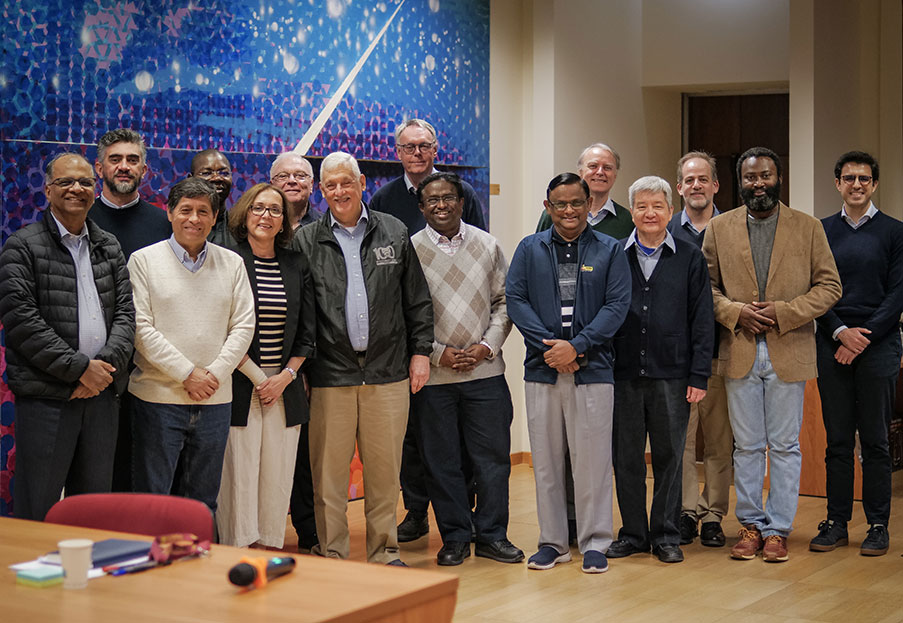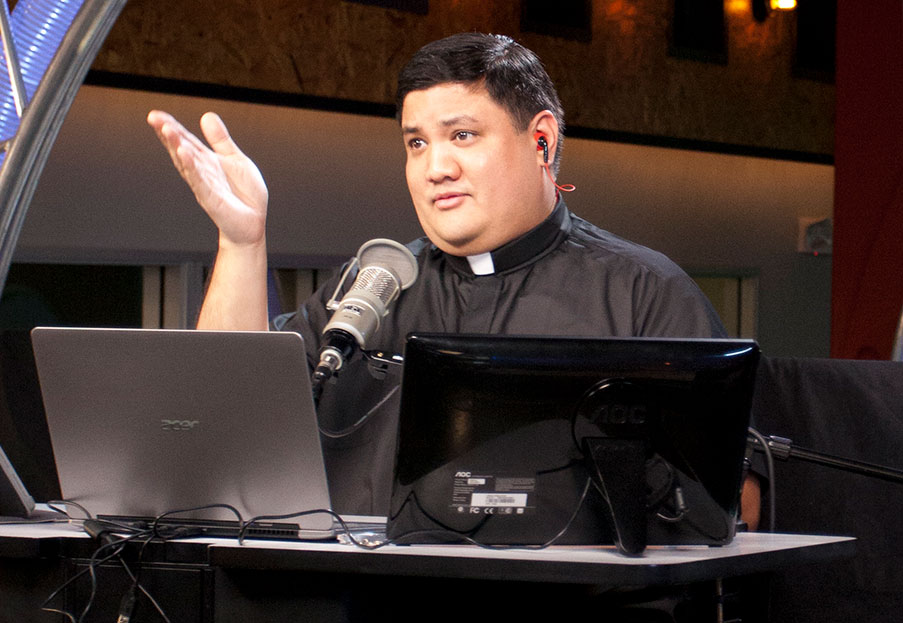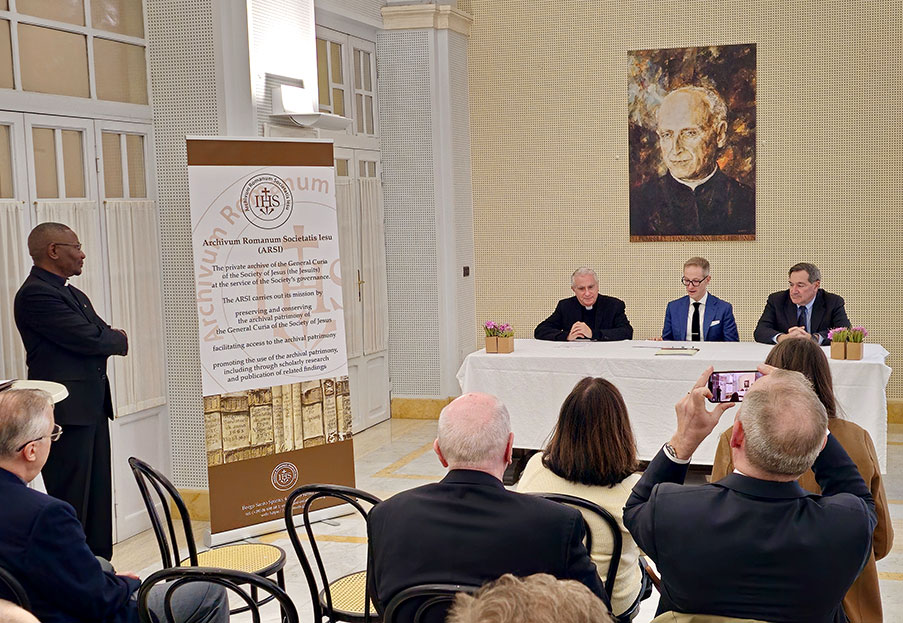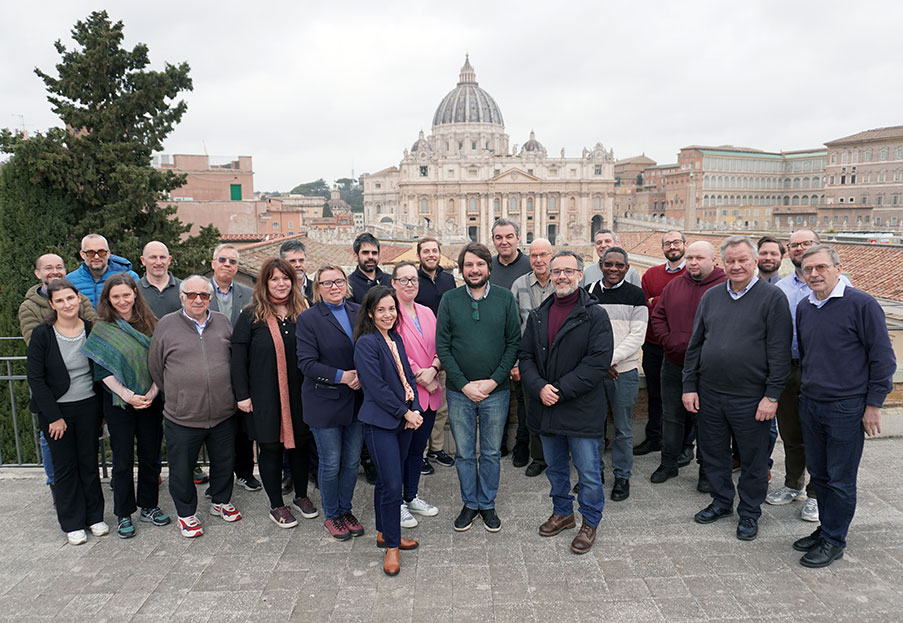“Socius”, a peculiar title, an essential function
If someone asks us what our function is in the Society of Jesus and we answer, “I am a ‘socius’,” the interlocutor looks at us with questioning eyes. This important position for the smooth running of the Society at all levels of responsibility is often presented as being an “assistant” to Father General, to the President of the Conference, to the Provincial, to the Novice Master, to the Tertianship Instructor. But, in the spirit of St. Ignatius, it is much more than just an administrative assistant. The socius is a “companion”, an ally, an associate, according to the Latin origin of the word.
In the series of sessions offered by the General Curia, after the orientation for new Provincials and, more recently, for new Treasurers, 14 newly appointed socii came to learn the modo de proceder, the Society’s way of operating, according to the Ignatian expression. A session in Spanish was organized for Jesuits from Latin America who were joined by the socius of Portugal.
We
asked three of them to testify about their experience in Rome.
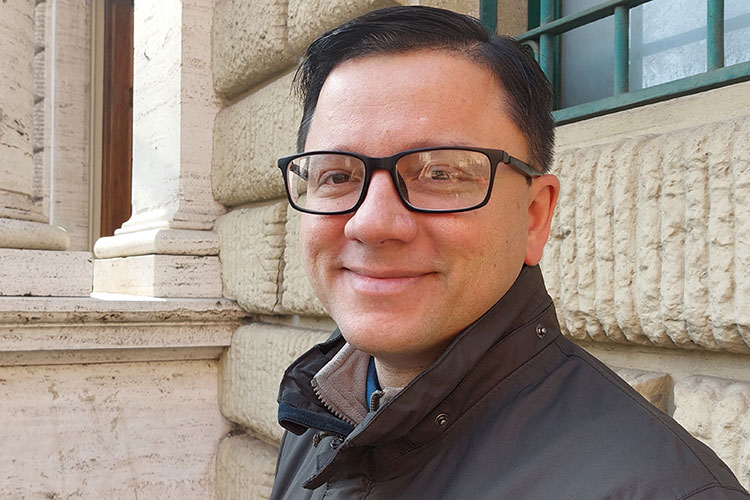
Fr. Yovanny Bermúdez SJ
Yovanny Bermúdez (Venezuela)
During the course for new socii, I noted two points, the first from Arrupe: “pray, pray, pray a lot.” The different situations in the Province are not only solved in a practical way, but also by praying and trusting to find the ways that best help the person and the Society. The second point is the circle of action-contemplation which summarizes the images that Father General proposes for the socius: accompanier (he is companion), walking staff (he offers support) and bridge (he unites and communicates). This requires to let oneself be surprised because words and persons open, in most cases, apostolic paths.
Next,
our service supports the dimension of integration with the Provincial, with our
Jesuit companions, with our collaborators and with the universal body of the
Society. The socius helps us to all move in the same direction, towards the
same horizon, and to bring together different styles as well as the whole set
of activities and tasks for the progress of the mission. It is a role that implies
constant creativity to carry out the incarnated mission that is entrusted to us
in the different Provinces.
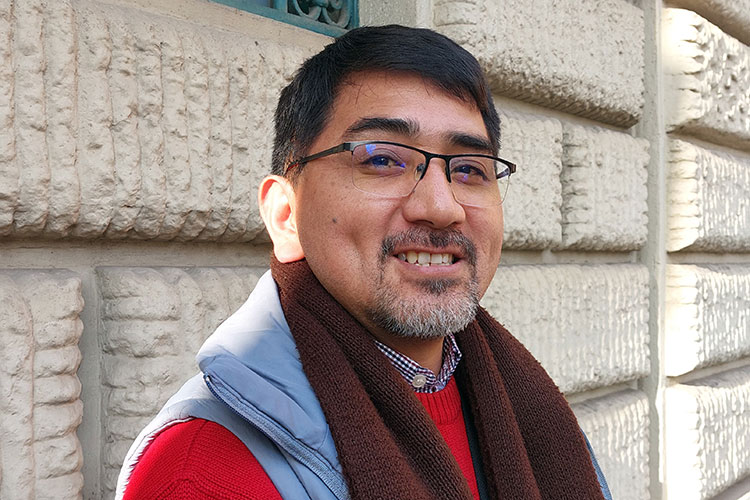
Fr. Juan Pablo Escalante SJ
Juan Pablo Escalante (Bolivia)
I am Juan Pablo Escalante Coro, a native Bolivian and a Jesuit. Socius for almost six months, I am still learning this mission. In addition to the help of my predecessor, I was invited, with my counterparts from Latin America, to the meeting that took place at the General Curia in Rome.
I
would like to highlight three powerful points from the meeting. 1st.
An experience of diversity and universality. I am experiencing the plurality of
my fellow Jesuits, both the participants in the meeting and the members of the
General Curia. The jargon and habits that we share and that the Society of
Jesus imprints on us make the experience unique. 2nd. Some tools for
the work of the socius. From different perspectives (communicational,
juridical, apostolic, historical, economic and others), the presenters offered
some means to clarify the work and role of the socius. The exhortation to deal
simply and straightforwardly with the Assistants and General Councillors, the
sapiential approach of the Practica
Quaedam manual and the Society’s Archives resonated with me. 3rd.
Some challenges in the identity-mission of socius. From what I have received, I
undertake with gratitude and conviction, the desire to be, with lucidity and a
good sense of humour, “companion”, “bridge” and “walking staff” of my
Provincial, doing a better service to my Province.
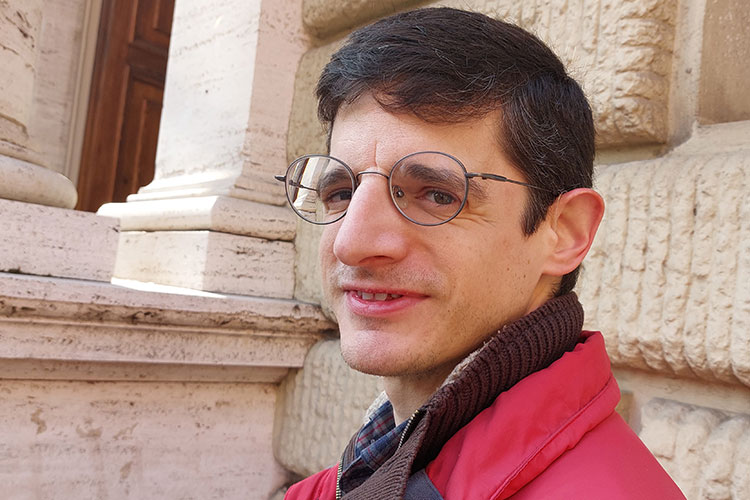
Fr. António Ary SJ
António Ary (Portugal)
“I will be propitious to you in Rome.”This phrase that Ignatius heard at La Storta, on entering Rome, resounds in my heart, like a promise fulfilled, at the end of these days of meeting of socii at the General Curia. Some around here call it a “Socii’s Course”, and we certainly learned a lot about the importance and the way of doing this work, as well as about the functioning of the governance of the universal Society. But it was first and foremost a time of encounter between companions and brothers who share the same mission of supporting those who exercise authority. It was, therefore, a propitious time because we were able to meet and share with others who live the same challenges, difficulties, problems and desire to serve, being like the oil that makes the Society’s engine run.
We
are also encouraged by having been able to meet and get to know those who, in
Rome, are our interlocutors, more or less direct, in the task of facilitating
communication between the Province and Father General. We return to our often
lonely offices, certain that we are not alone, because the One who called us to
this mission also accompanies us, and because we feel even more part of a body
of friends in the Lord.
